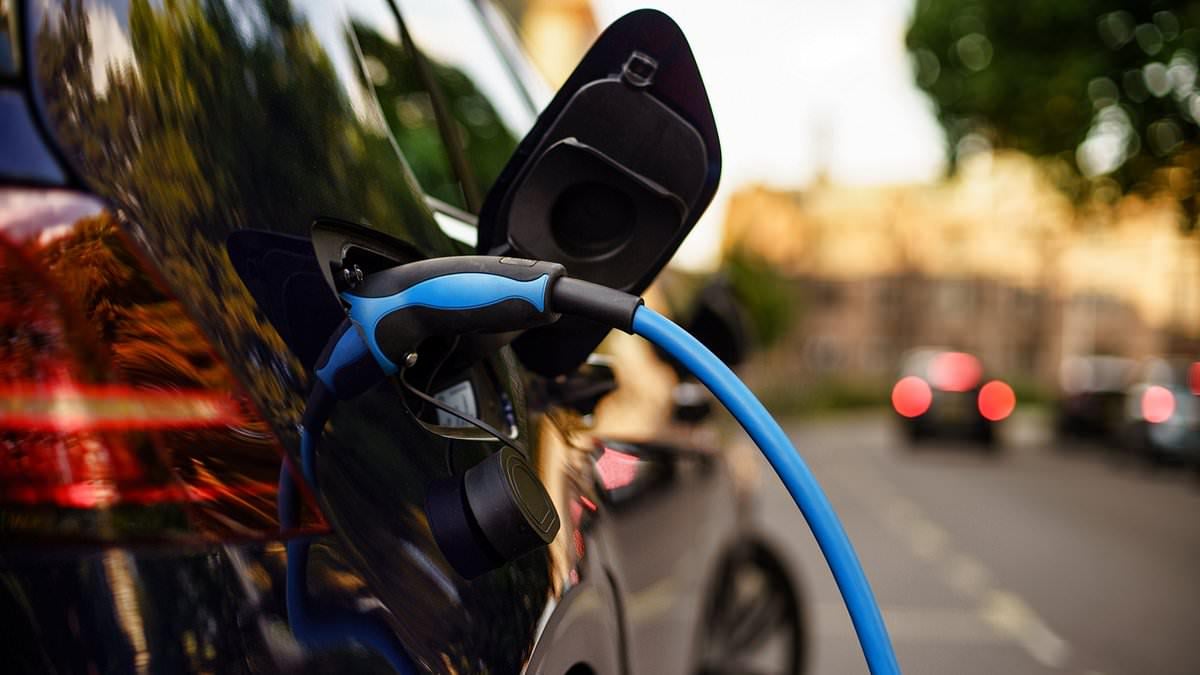
What range anxiety? As EV market share hit 36% in UK, MOT data shows EVs have greater annual mileage than petrol cars
https://www.thisismoney.co.uk/money/electriccars/article-14915513/Electric-cars-cover-higher-annual-mileage-petrol.html
by Economy-Fee5830
5 comments
# What range anxiety? As EV market share hit 36% in UK, MOT data shows EVs have greater annual mileage than petrol cars
Electric vehicles are rapidly dismantling the perception that they’re only suitable for short trips, with new data revealing that EV drivers are covering significantly higher annual mileages than petrol car owners while the technology captures an ever-growing share of the UK market.
**EVs outperform petrol cars on distance**
Analysis of more than 1.2 million MOT tests by the RAC Foundation has shattered the myth that electric vehicles are limited to local journeys. Pure battery electric cars under three years old averaged 10,054 miles annually in 2024 – far exceeding the 7,585 miles covered by equivalent petrol vehicles.
Only diesel cars managed higher average mileages, at 10,728 miles, though the gap is narrowing rapidly. This represents a dramatic shift from 2015, when petrol cars last recorded higher annual mileage than EVs, back when battery vehicles were in their technological infancy.
The data reveals that electric vehicles now account for 5.3% of all recorded car mileage in the UK, despite representing just 3.8% of the national vehicle fleet – clear evidence that EV owners are using their cars more intensively than traditional vehicle owners.
**Market share soars to record highs**
The confidence in electric vehicle capability is reflected in surging market adoption. [June 2025 saw plugin EVs capture a remarkable 35.9% share of new car sales in the UK](https://cleantechnica.com/2025/07/14/evs-take-35-9-share-in-the-uk-tesla-back-on-top/), up from 28.2% in the same month the previous year. Full battery electric vehicles alone took 24.8% of the market.
This represents a new record high for plugin share outside of December months, when manufacturers typically push EV sales to meet annual emissions targets. The robust performance demonstrates the effectiveness of the UK’s Zero Emission Vehicle (ZEV) mandate, which requires manufacturers to sell increasing numbers of electric cars each year or face fines of up to £15,000 per excess fossil fuel vehicle.
**Infrastructure drives confidence**
The transformation in EV usage patterns has been enabled by rapid expansion of charging infrastructure, particularly ultra-rapid charging hubs on the motorway network. Modern charging devices can boost the latest EVs from 10% to 80% charge in under 30 minutes, making long-distance travel increasingly practical.
Steve Gooding, director of the RAC Foundation, explained the significance: “Until recently, new car buyers, often fleets and businesses, have looked to diesels when they’ve needed something capable of racking up the big miles whilst still offering reasonable fuel economy. Now it seems that fully electric cars are starting to take over where the diesel left off.”
**From second car to workhorse**
The data signals a fundamental shift in how electric vehicles are perceived and used. “The world where many saw the electric vehicle as being a second-car option, handy only for short trips, is changing rapidly to one where the battery-electric car is being bought to be a workhorse,” Gooding noted.
This evolution is being driven by multiple factors: improved battery technology offering greater range, lower running costs compared to fossil fuel vehicles, attractive tax breaks for business users, and the expanding charging network that reduces range anxiety.
**Government support continues**
The momentum is being supported by continued government backing. Recently announced electric car grants of up to £3,750 are available for sustainably-produced EVs with retail prices below £37,000, with funding secured until 2028-29. The size of the grant depends on how sustainably the vehicles and their batteries are manufactured.
**Looking ahead**
With combustion-only vehicles now representing just 51.6% of new car sales and expected to drop below 50% by the end of Q3 2025, the UK is establishing itself as a leader in the electric transition. The country is now pulling significantly ahead of major European neighbours like France and Germany in EV adoption rates.
The data suggests that range anxiety – long cited as a primary barrier to EV adoption – is becoming increasingly irrelevant as electric vehicles prove their capability for high-mileage use. As charging infrastructure continues to expand and battery technology improves, the gap between electric and traditional vehicles is likely to narrow further, potentially positioning EVs as the preferred choice for both short commutes and long-distance driving.
Ive never experienced it.. drive 15K a year on my EV…charge at home at night…. live in CA and chargers everywhere…your experience may vary. My EV rarely gets below 20%.
What gets me is people arguing against EVs for the 1 trip a year they take. So you spend more money on a car that you need less than .3% if the time… seems silly. Rarely needs maintenance, charge at home, easy to drive….I will not be buying a ICE car again.
Ev depreciation tells the real story
The more kilometers you drive, the more cheaper electricity compared to fuels is relevant.
It is not odd that people driving more than the average convert to electric vehicle first. To them, the saving over time will offset the higher vehicle price sooner than for the average driver.
Wonderful. We can make this transformation very swiftly and the world will be better for it.
Comments are closed.